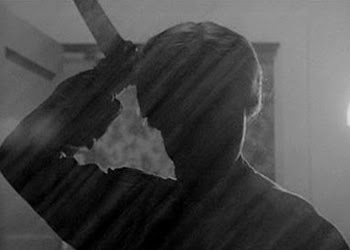Copyright
2018 by Gary L. Pullman
The need for
autonomy is the need for personal independence, the need to direct
one's own path, the need to take charge of one's own life, the need
to be in charge of one's own destiny. As with the other fourteen
“basic needs” Jib Fowles addresses in Mass
Advertising as Social Forecast,
advertisers (or horror writers) can appeal to the need for autonomy
either by showing characters who are autonomous or “by
invoking the loss of independence or self-regard.”
Probably one of the clearest examples horror fiction's tapping into readers' need for autonomy is Stephen King's first novel, Carrie (1974). It recounts the difficult childhood of adolescent Carietta (“Carrie”) White. Her mother, Margaret, is a fanatical Christian fundamentalist who projects her own personal and sexual insecurities onto her daughter, referring to Carrie's breasts as “dirty pillows” and suggesting Carrie is a slut because of her interest in boys. Margaret says Carrie is a hell-bound sinner certain to be damned if she doesn't watch her ways and reinforces her own dictates as to her own dictates with physical abuse. At school, Carrie, who is unpopular, is often treated cruelly and with contempt.
Probably one of the clearest examples horror fiction's tapping into readers' need for autonomy is Stephen King's first novel, Carrie (1974). It recounts the difficult childhood of adolescent Carietta (“Carrie”) White. Her mother, Margaret, is a fanatical Christian fundamentalist who projects her own personal and sexual insecurities onto her daughter, referring to Carrie's breasts as “dirty pillows” and suggesting Carrie is a slut because of her interest in boys. Margaret says Carrie is a hell-bound sinner certain to be damned if she doesn't watch her ways and reinforces her own dictates as to her own dictates with physical abuse. At school, Carrie, who is unpopular, is often treated cruelly and with contempt.
The onset of menstruation is a terrifying to Carrie, who is unprepared for its occurrence, her mother having taught her nothing about puberty and its effects. Her classmates taunt her, throwing tampons and sanitary napkins at her in the communal shower following physical education class, when Carrie begins to menstruate, shouting at her to “plug it up!”
King says he based Carrie on two schoolgirls he knew during his high school years:
One
was a timid epileptic with a voice that always gurgled with phlegm.
Her fundamentalist mother kept a life-size crucifix in the living
room, and it was clear to King that the thought of it followed her
down the halls.
The
second girl was a loner who wore the same outfit every day, which
drew cruel taunts.
King says he wondered what it was like for the first girl to grow up in a home like hers.
Without parental guidance and ostracized by her classmates as a social pariah, Carrie has no guidance (one of Fowles's fifteen “basic needs”), but she has enough courage to attempt to escape her mother's domineering influence and her schoolmates' cruelty as she attempts to establish autonomy, especially after she discovers she possesses telekinetic abilities.
When one of her tormentors repents of her cruel treatment of Carrie, asking her boyfriend, Tommy Ross, to escort Carrie to the prom, Carrie is overjoyed, despite her mother's insistence that going to the dance is a sinful “carnal” act, and she makes herself a red velvet dress. Margaret is afraid of her daughter, convinced that Carrie's telekinetic abilities prove that she is a witch. (Witchcraft, Margaret contends, runs in the family, appearing in every other generation.)
At first, things seem to go well at the prom, until one of Carrie's tormentors, Chris Hargensen, arranges with her boyfriend, Billy Nolan, to pour pigs' blood on Carrie and her date. In the process, Tommy is killed.
Humiliated, Carrie then launches her revenge, locking the students in the room, electrocuting several of them, and incinerating the rest. On her way home, she destroys much of her hometown, snapping power lines and destroying gas pumps to cause massive explosions.
At home, Margaret, believing her daughter to be possessed by the devil, attempts to stab Carrie to death, by Carrie thwarts her mother by stopping Margaret's heart. (in the film adaptation, Carrie kills Margaret by piercing her with knives in a parody of the crucifixion of Christ.) Thereafter, as she makes her way to the roadhouse at which she was conceived (according to Margaret, as the result of “marital rape”), Billy and Chris attempt to run over her with Billy's car, but she crashes their vehicle, killing her would-be murderers. Carrie dies of the mortal wound inflicted by her mother.
Sixteen-year-old Carrie, despite her mother's abusive treatment of her and her classmates' cruelty, attempts to gain independence, defying her mother as she adopts her own values and beliefs and to find acceptance at school by attending the prom with a popular boy. She also exchanges her drab attire for the red velvet dress she made especially for the occasion, a coming-out affair of sorts for the troubled teen. Despite Carrie's lack of parental guidance, the insecurities and fears her psychotic mother attempts to project onto her, and her schoolmates' ostracism and torment of her, Carrie sees that life is to be embraced, not feared, and she courageously attempts to exercise autonomy as she takes charge of herself and her own life.
King suggests that, despite such courage—and despite the paranormal powers Carrie possesses—his protagonist's efforts are in vain because several other “basic needs” have not been met, such as the need for affiliation, the need for nurture, and the need for guidance. Without the fulfillment of these needs, she is unable to satisfy the need for autonomy. By denying Carrie the fulfillment of her need for autonomy, King endorses the importance not only of this need but the others which support it.
























